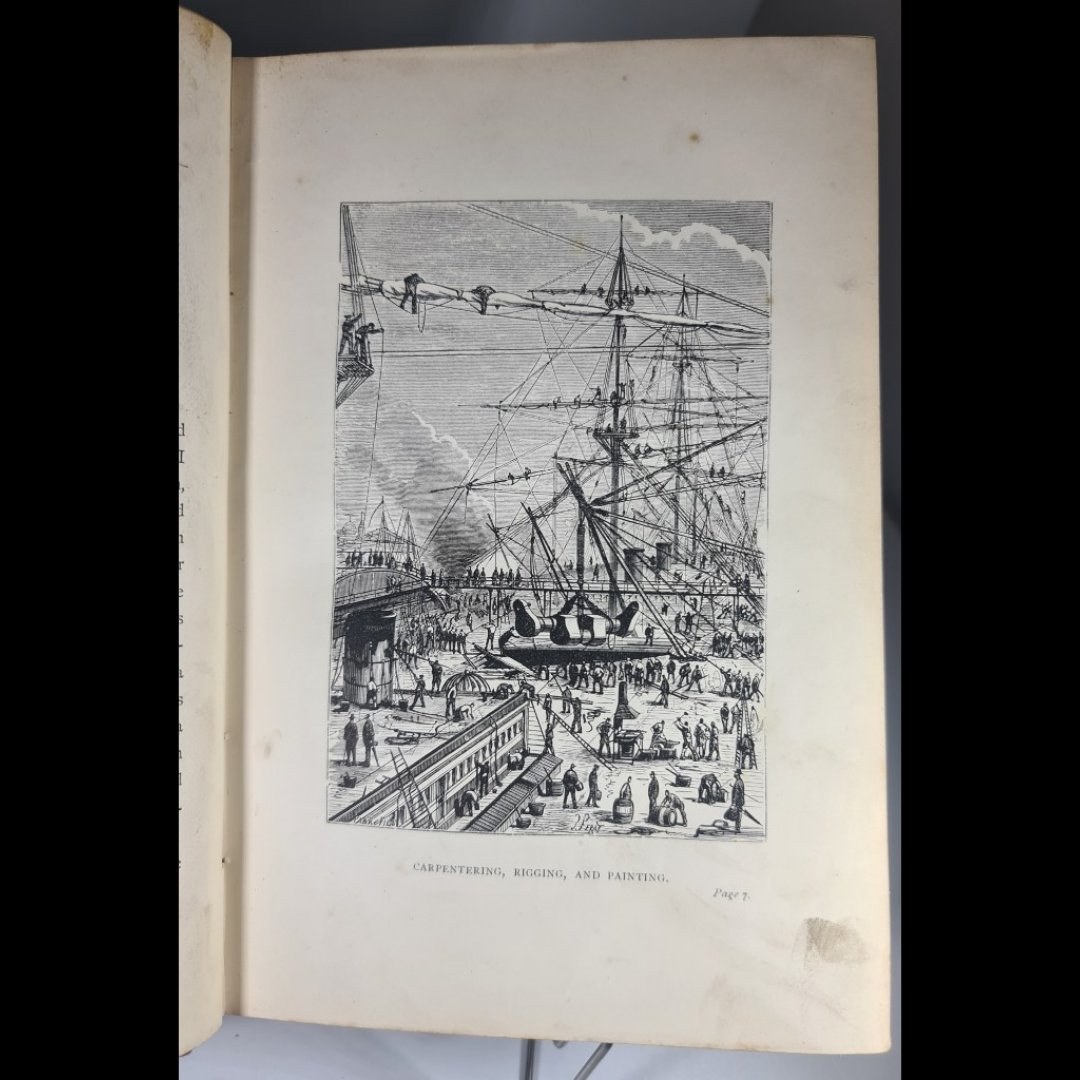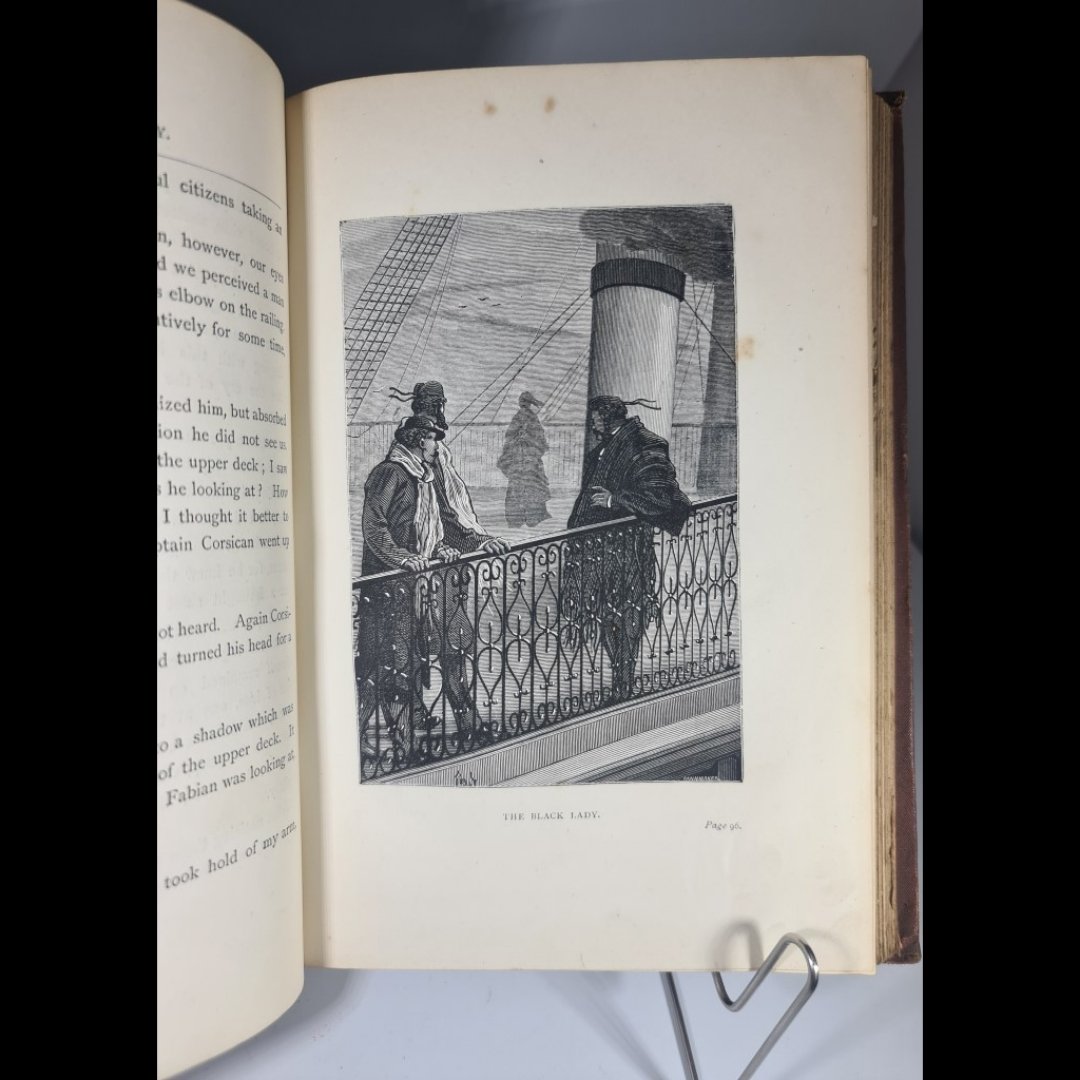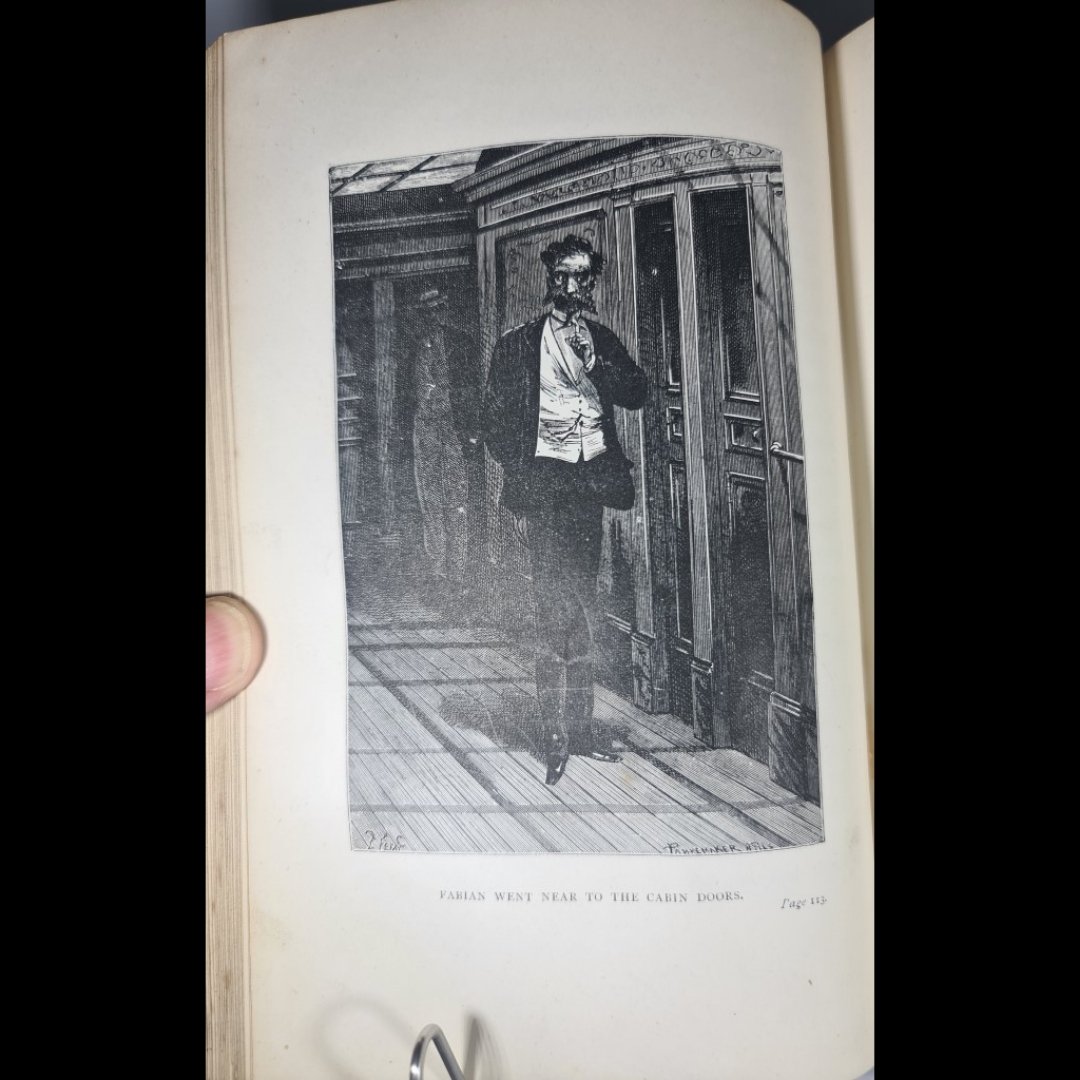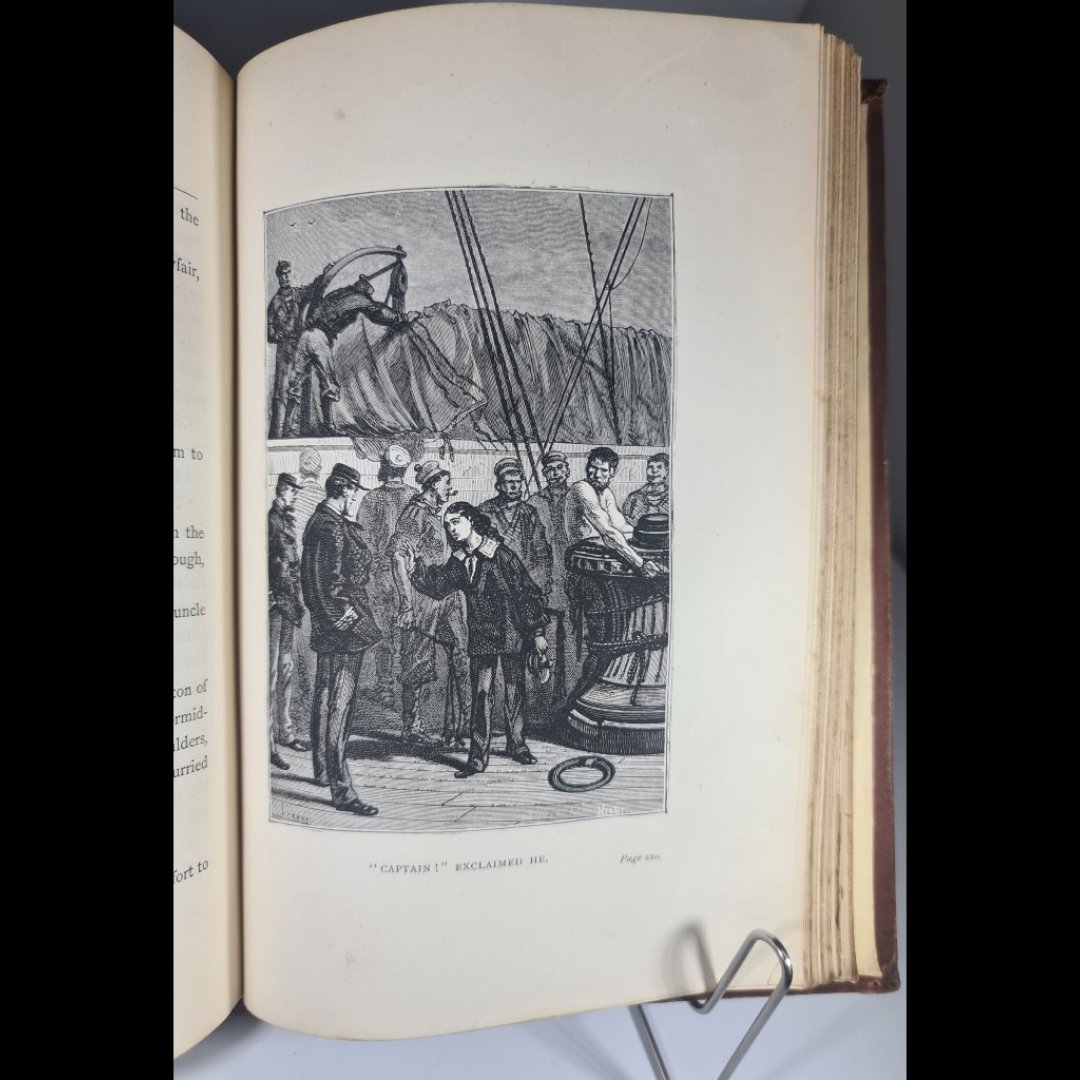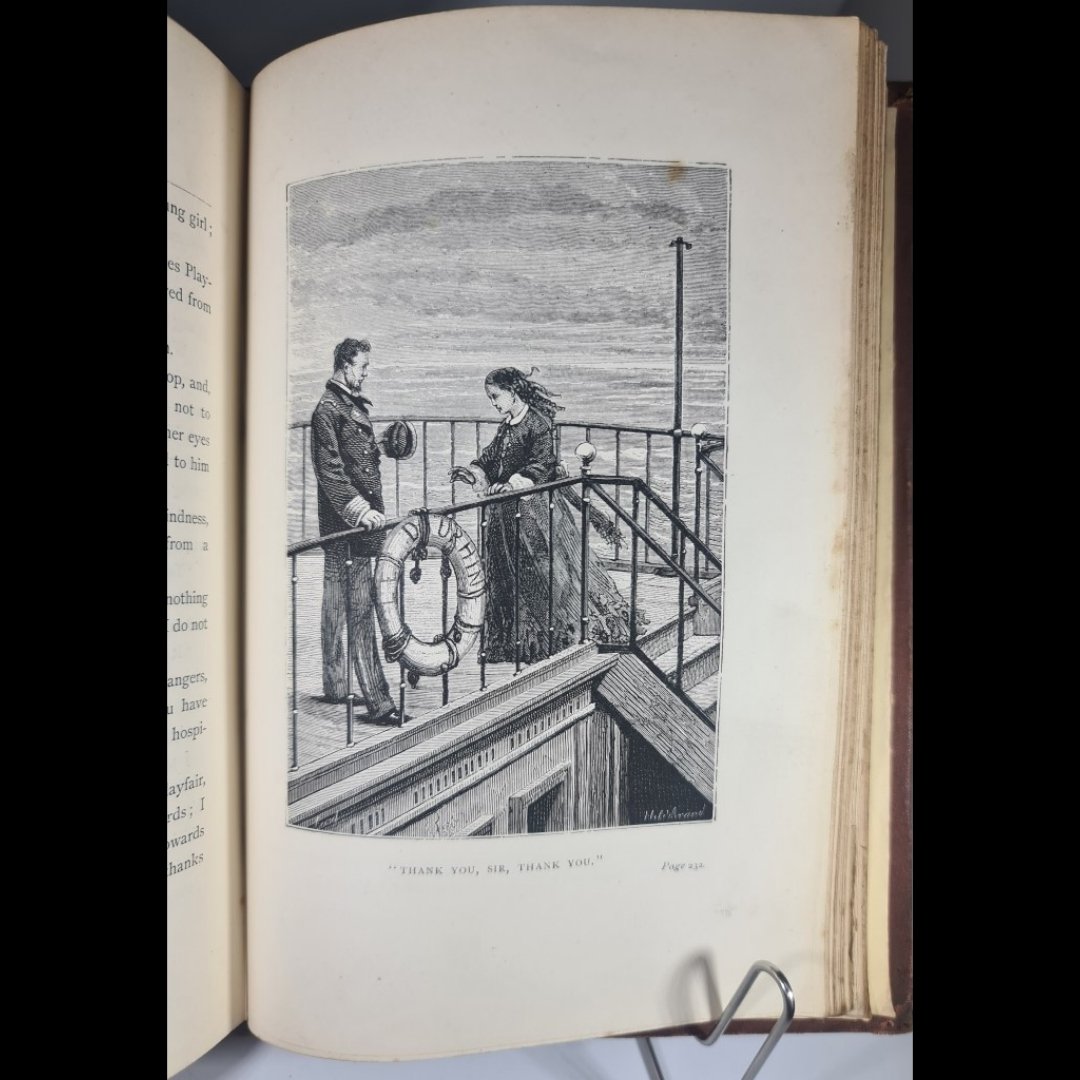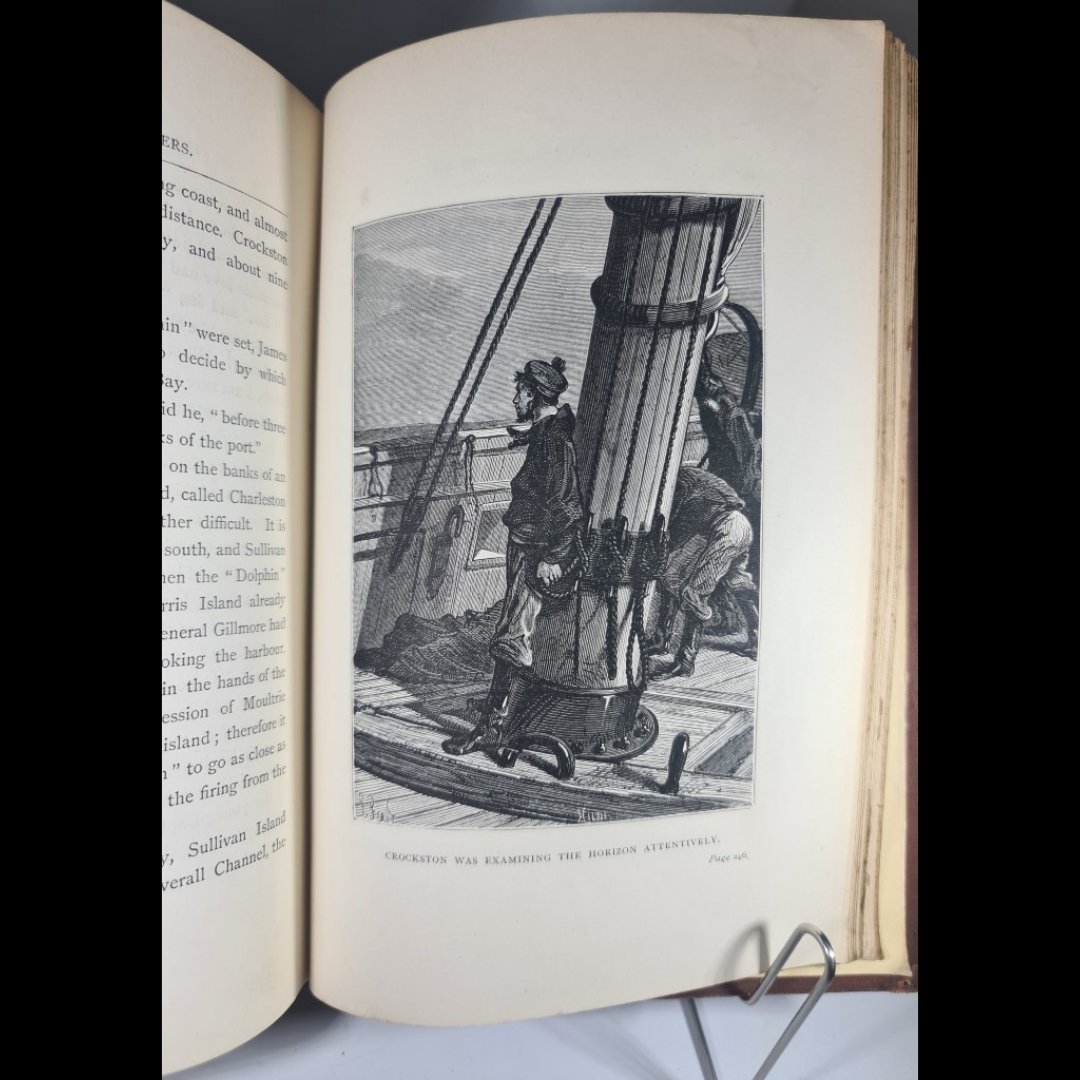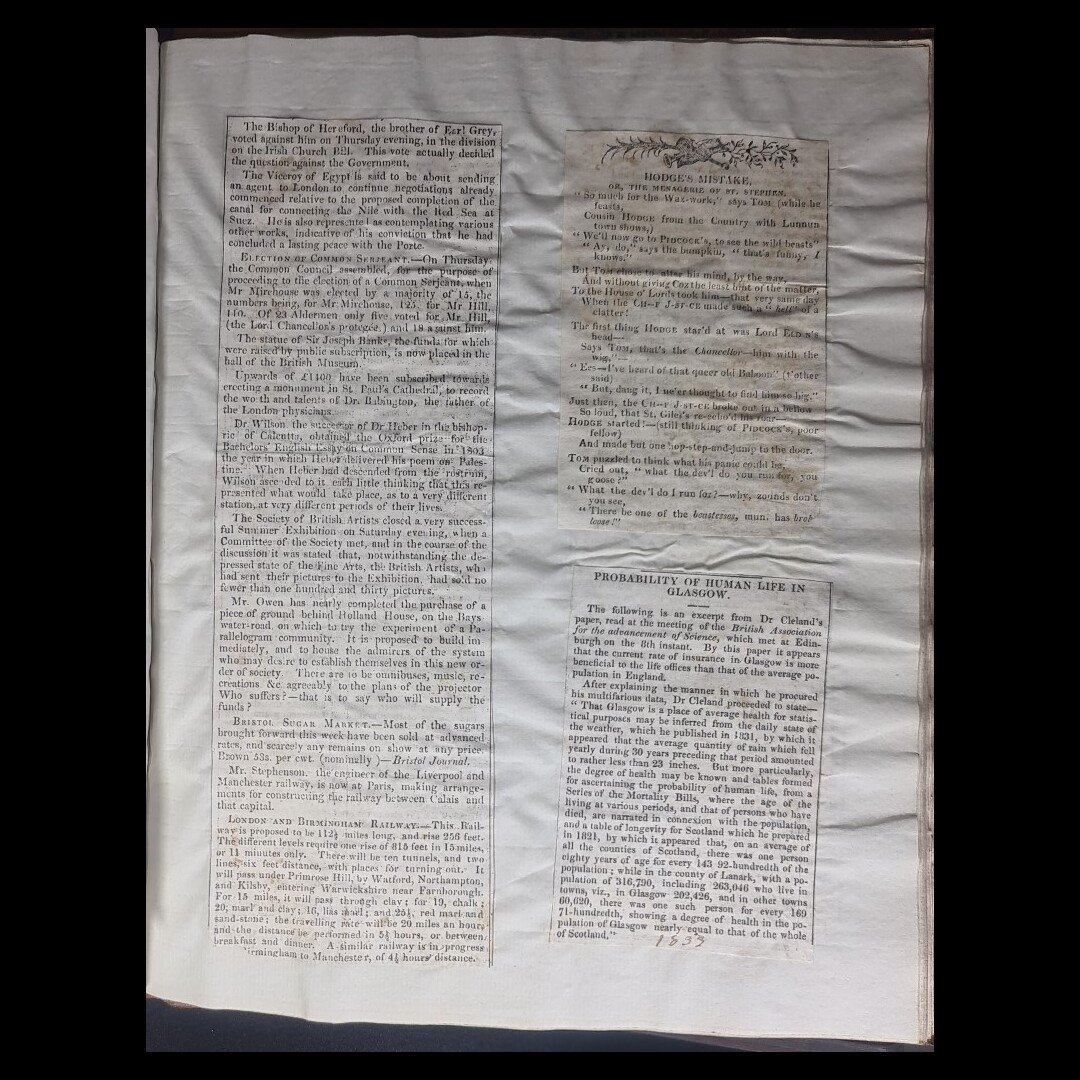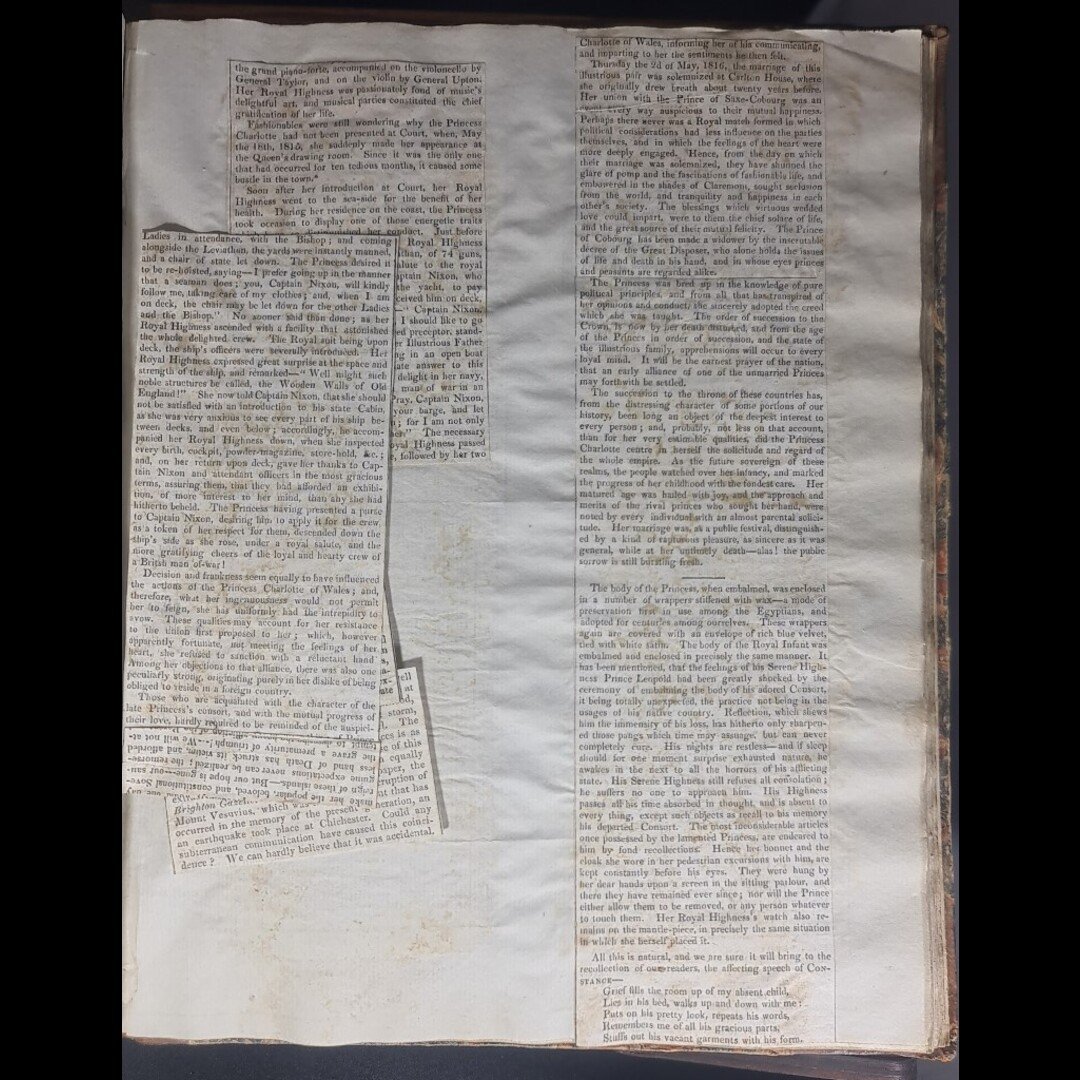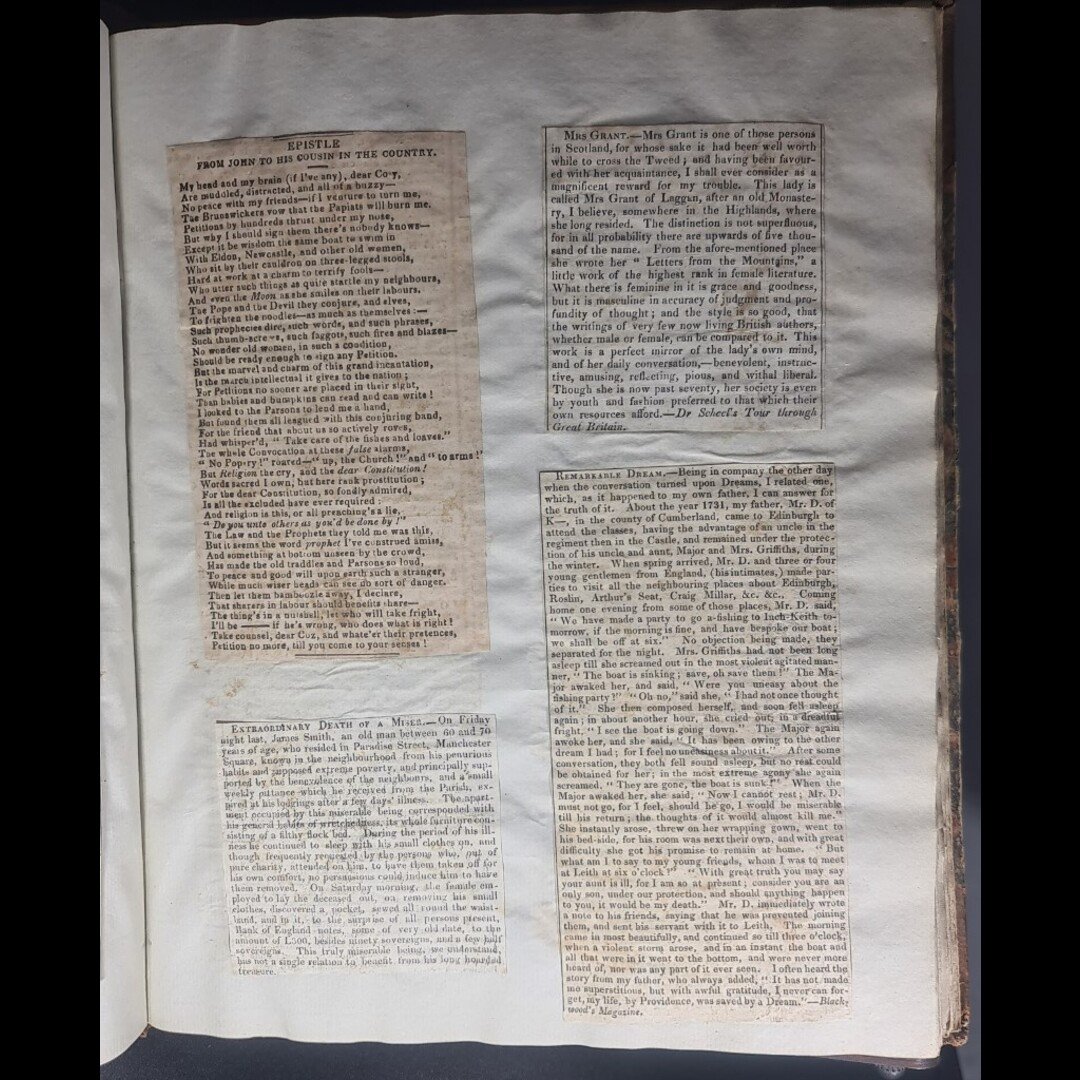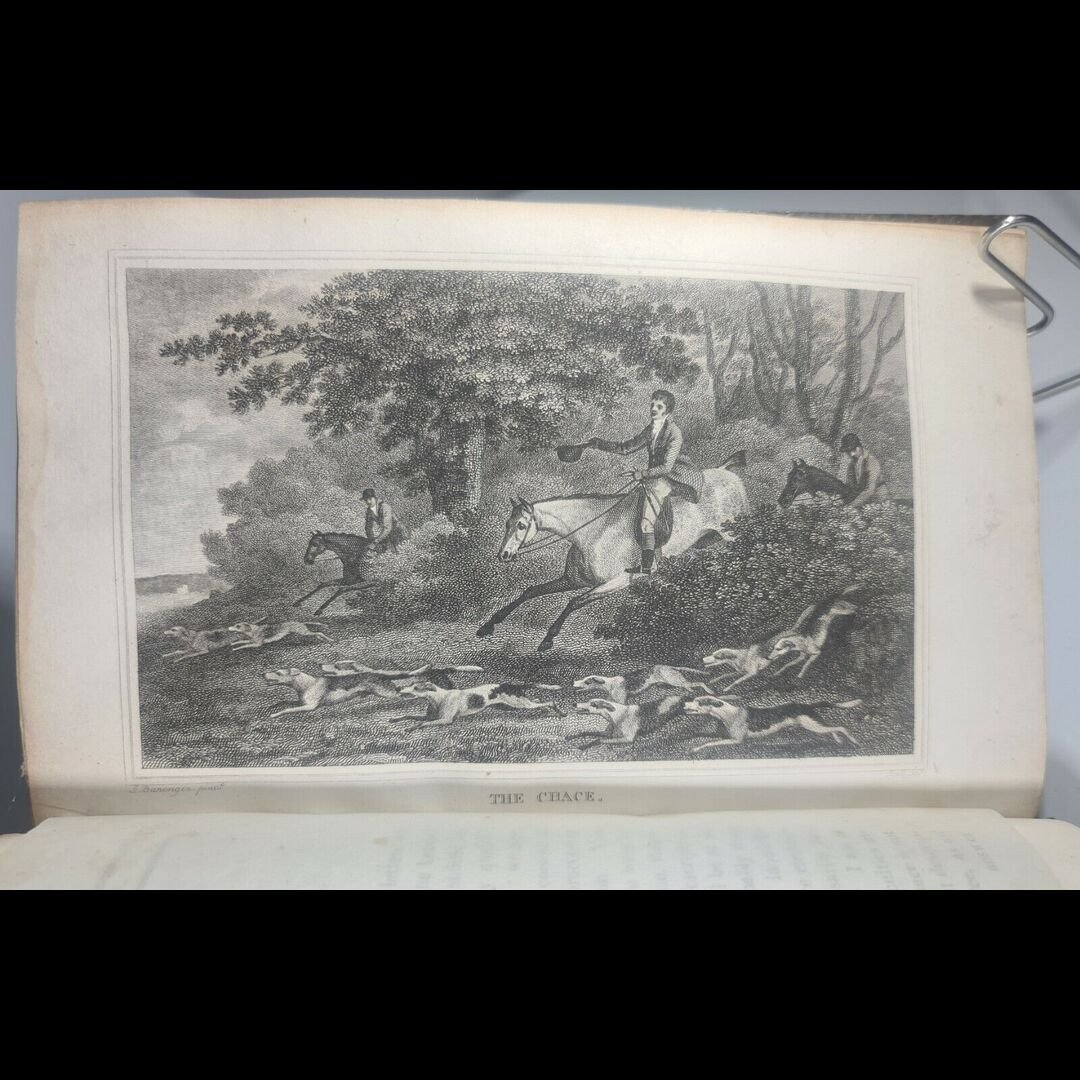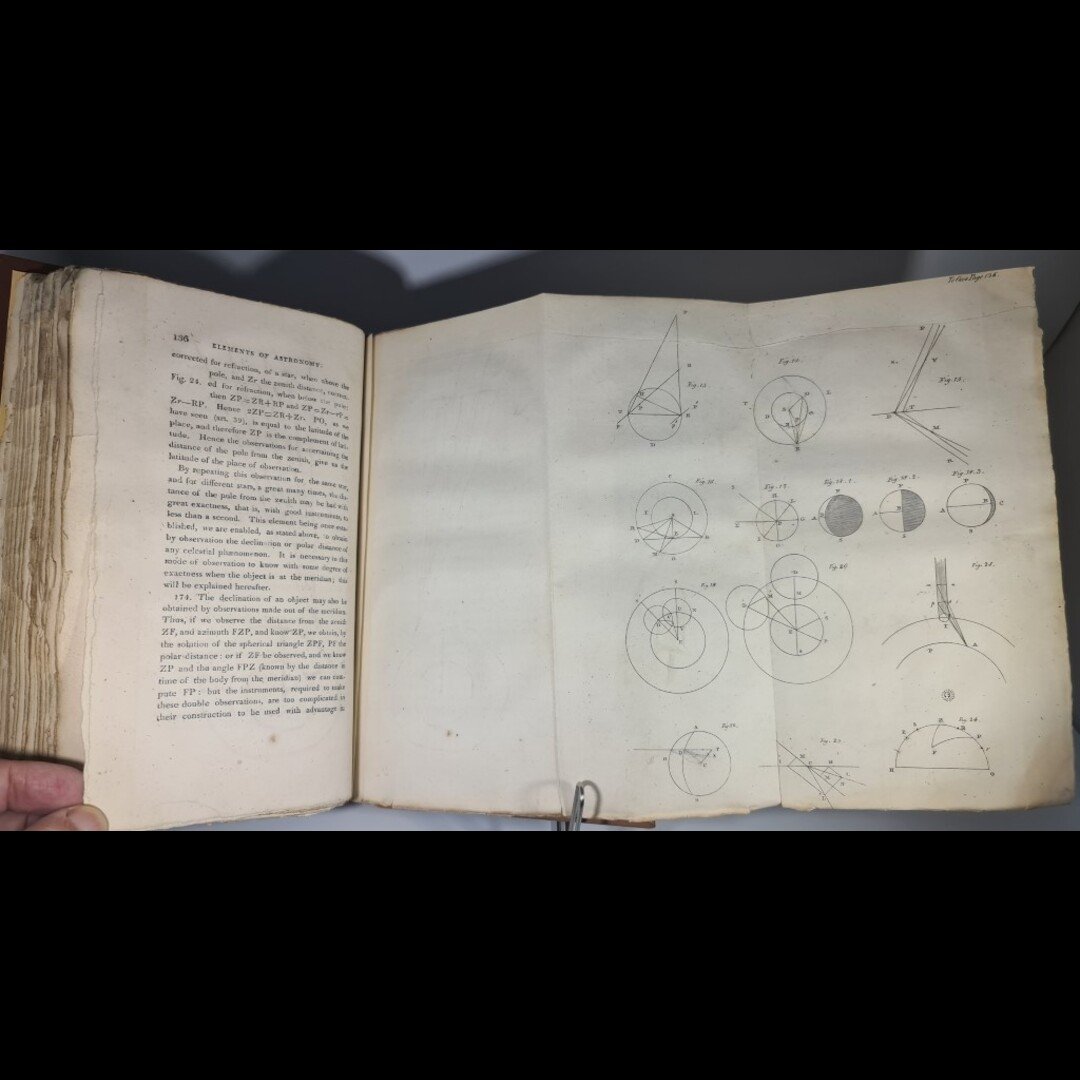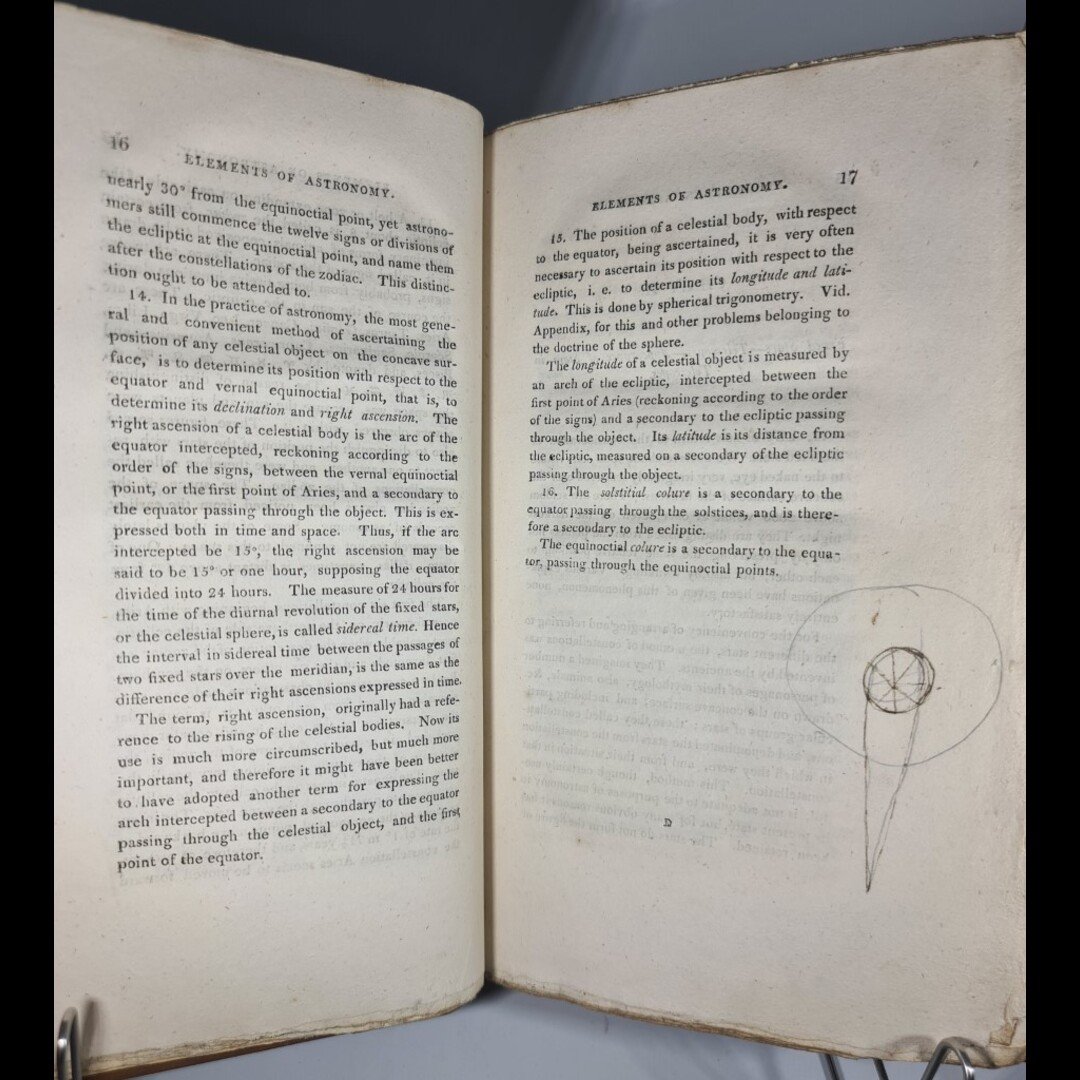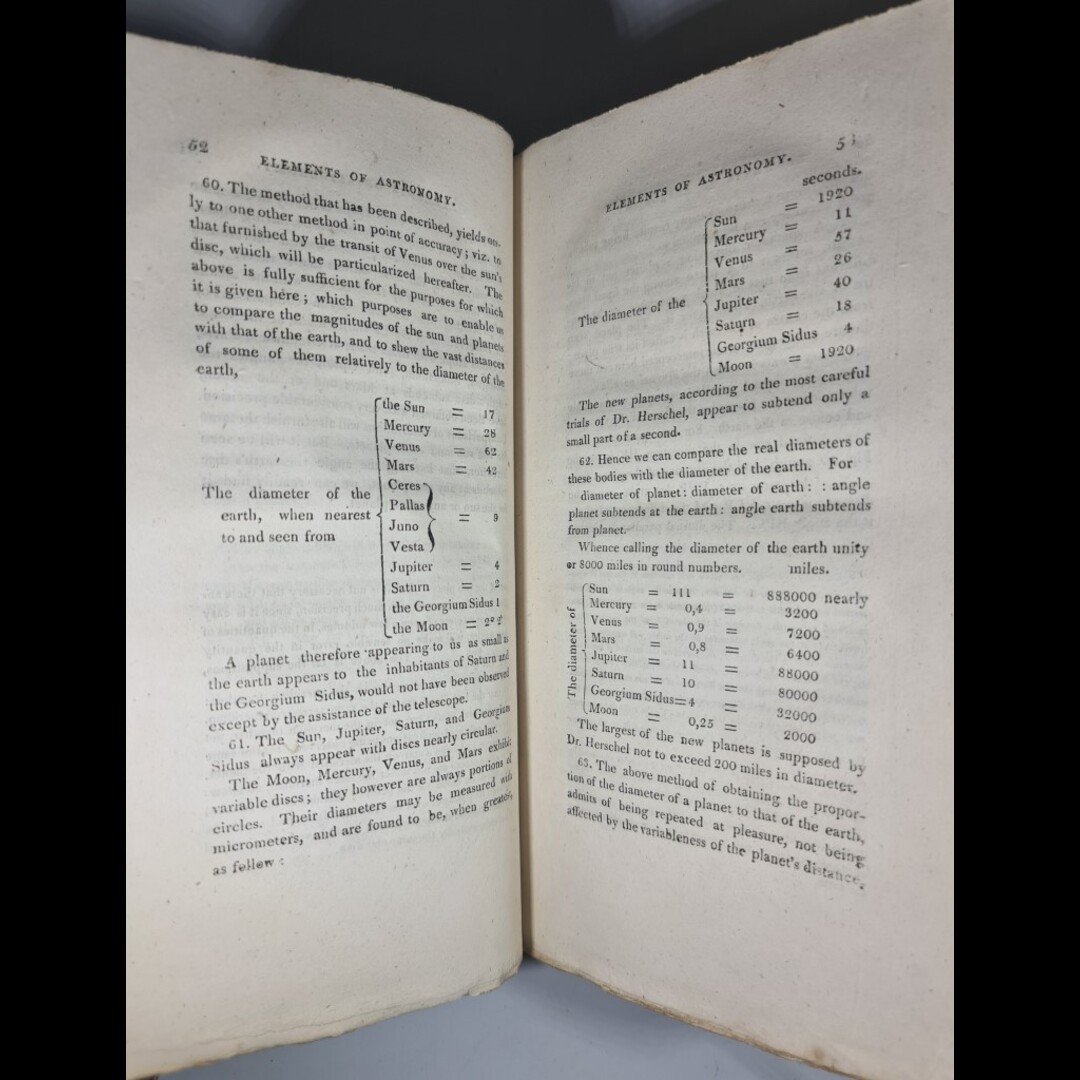 Image 1 of 4
Image 1 of 4

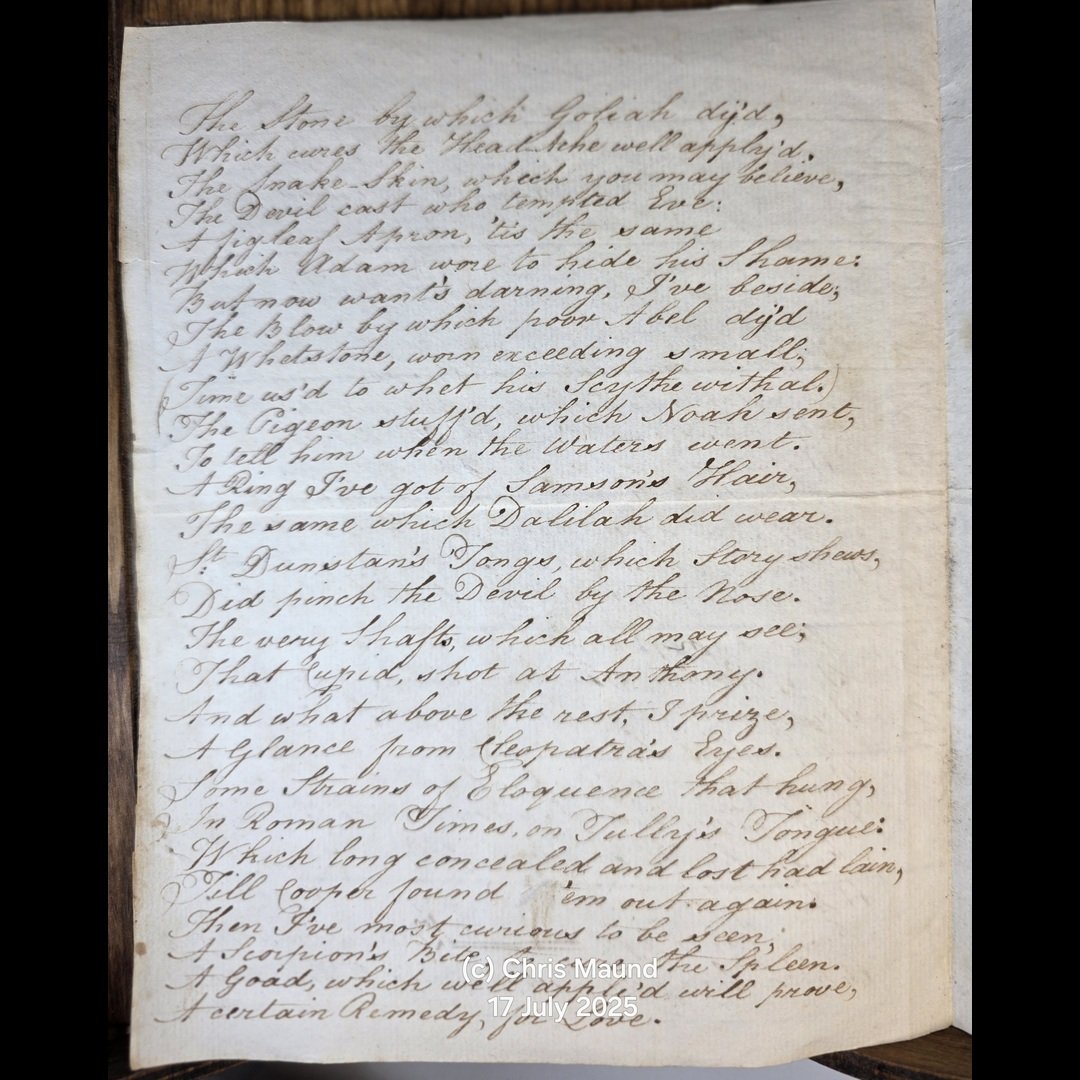 Image 2 of 4
Image 2 of 4

 Image 3 of 4
Image 3 of 4

 Image 4 of 4
Image 4 of 4





1803 Manuscript SIR CHARLES HANBURY'S POEM TO SIR HANS SLOANE By Anon Illus. Good Poetry
SIR CHARLES HANBURY'S POEM TO SIR HANS SLOANE
By Anon
Illustrated By: N/A
Format: Manuscript,
Language: English
Dust Jacket: No Jacket, Dust Jacket Condition: No Jacket
Published By: ,
octavo (8vo 6 נ9 152 נ229),Pages 3
ISBN:
A manuscript copy of Sir Charles Hanbury's poem to Sir Hans Sloane
3 pages
Watermarked 1803
Sir Charles Hanbury Williams, KB (8 December 1708 � 2 November 1759) was a Welsh diplomat, writer and satirist. He was a Member of Parliament from 1734 until his death. Hanbury Williams became known as one of the prominent wits about town, and following in the tradition of Alexander Pope (1688-1744) he wrote a great deal of satirical light verse, including Isabella, or the Morning (1740), satires on Ruth Darlington and Pulleney (1741�1742), The Country Girl (1742), Lessons for the Day (1742), and Letter to Mr Dodsley (1743). Collections of his poems appeared in 1763 and of his Works in 1822. Horace Walpole praised the wit of his poetry and wrote of his "biting satire".
Sir Hans Sloane, 1st Baronet PRS (16 April 1660 � 11 January 1753), was an Anglo-Irish physician, naturalist, and collector, with a collection of 71,000 items which he bequeathed to the British nation, thus providing the foundation of the British Museum, the British Library, and the Natural History Museum, London. He was elected to the Royal Society at the age of 24. Sloane travelled to the Caribbean in 1687 and documented his travels and findings with extensive publications years later. Sloane was a renowned medical doctor among the aristocracy, and was elected to the Royal College of Physicians at age 27. He is credited with creating drinking chocolate.
Sir CHARLES HANBURY to Sir HANS SLOANE, Who saved his Life, and desired him to send over all the Rarities he could find in his Travels.
SINCE you, dear Doctor, sav'd my life,
To bless by turns and plague my wise,
In conscience I'm oblig'd to do
Whatever is enjoin'd by you.
According then to your command,
That I should search the western land
For curious things of ev'ry kind,
And send you all that I should find,
I've ravag'd air, earth, seas, and caverns,
Men, women, children, towns, and taverns;
And greater rarities can shew
Than Gresham's children ever knew,
Which carrier Dick shall bring you down,
Next time his waggon comes to town.
First, I've three drops of that same shower
Which Jove in Danae's lap did pour;
From Carthage brought, the sword I'll send
Which brought Queen Dido to her end;
The stone whereby Goliath dy'd,
Which cures the head-ach well apply'd;
The snake-skin, which you may believe,
The devil cast who tempted Eve;
A fig-leaf apron�it's the same
That Adam wore to hide his shame,
But now wants darning; I've beside,
The blow by which poor Abel dy'd;
A whetstone worn exceeding small,
Time us'd to whet his scythe withal;
The pigeon stuff'd, which Noah sent
To tell him where the waters went.
A ring I've got of Sampson's hair,
The same which Dalilah did wear;
Saint Dunstan's tongs, which story shews,
Did pinch the devil by the nose;
The very shaft, as all may see,
Which Cupid shot at Antony;
And, which above the rest I prize,
A glance of Cleopatra's eyes;
Some strains of eloquence which hung
In Roman times on Tully's tongue,
Which long conceal'd and lost had lain,
Till _____ found them out again.
Then I've, most curious to be seen,
A scorpion's bite to cure the spleen:
A goad that, rightly us'd, will prove
A certain remedy to love:
As Moore cures worms in stomach bred,
I've pills cure maggots in the head;
With the receipts too how to take 'em
�
I've got a ray of Phoebus' shine,
Found in the bottom of a mine;
A lawyer's conscience, large and fair,
Fit for a judge himself to wear.
I've a choice nostrum fit to make
At oath a catholick will take.
In a thumb vial you shall see,
Close cork'd, some drops of honesty,
Which after searching kingdoms round,
At last, were in a cottage found.
An antidote, if such there be,
Against the charms of flattery.
I ha'nt collected any care,
Of that there's plenty ev'ry where;
But after wond'rous labours spent,
I've got one grain of rich content.
This my wish�it is my glory�
To furnish your nicknackatory;
I only beg that when you shew 'em,
You'll tell your friends to whom you owe 'em;
Which may your other patients teach
To know, as has done yours, C. H.
SKU: BTETM0001993
Approximate Package Dimensions H: 12.5, L: 30, W: 25 (Units: cm), W: 2Kg/p
SIR CHARLES HANBURY'S POEM TO SIR HANS SLOANE
By Anon
Illustrated By: N/A
Format: Manuscript,
Language: English
Dust Jacket: No Jacket, Dust Jacket Condition: No Jacket
Published By: ,
octavo (8vo 6 נ9 152 נ229),Pages 3
ISBN:
A manuscript copy of Sir Charles Hanbury's poem to Sir Hans Sloane
3 pages
Watermarked 1803
Sir Charles Hanbury Williams, KB (8 December 1708 � 2 November 1759) was a Welsh diplomat, writer and satirist. He was a Member of Parliament from 1734 until his death. Hanbury Williams became known as one of the prominent wits about town, and following in the tradition of Alexander Pope (1688-1744) he wrote a great deal of satirical light verse, including Isabella, or the Morning (1740), satires on Ruth Darlington and Pulleney (1741�1742), The Country Girl (1742), Lessons for the Day (1742), and Letter to Mr Dodsley (1743). Collections of his poems appeared in 1763 and of his Works in 1822. Horace Walpole praised the wit of his poetry and wrote of his "biting satire".
Sir Hans Sloane, 1st Baronet PRS (16 April 1660 � 11 January 1753), was an Anglo-Irish physician, naturalist, and collector, with a collection of 71,000 items which he bequeathed to the British nation, thus providing the foundation of the British Museum, the British Library, and the Natural History Museum, London. He was elected to the Royal Society at the age of 24. Sloane travelled to the Caribbean in 1687 and documented his travels and findings with extensive publications years later. Sloane was a renowned medical doctor among the aristocracy, and was elected to the Royal College of Physicians at age 27. He is credited with creating drinking chocolate.
Sir CHARLES HANBURY to Sir HANS SLOANE, Who saved his Life, and desired him to send over all the Rarities he could find in his Travels.
SINCE you, dear Doctor, sav'd my life,
To bless by turns and plague my wise,
In conscience I'm oblig'd to do
Whatever is enjoin'd by you.
According then to your command,
That I should search the western land
For curious things of ev'ry kind,
And send you all that I should find,
I've ravag'd air, earth, seas, and caverns,
Men, women, children, towns, and taverns;
And greater rarities can shew
Than Gresham's children ever knew,
Which carrier Dick shall bring you down,
Next time his waggon comes to town.
First, I've three drops of that same shower
Which Jove in Danae's lap did pour;
From Carthage brought, the sword I'll send
Which brought Queen Dido to her end;
The stone whereby Goliath dy'd,
Which cures the head-ach well apply'd;
The snake-skin, which you may believe,
The devil cast who tempted Eve;
A fig-leaf apron�it's the same
That Adam wore to hide his shame,
But now wants darning; I've beside,
The blow by which poor Abel dy'd;
A whetstone worn exceeding small,
Time us'd to whet his scythe withal;
The pigeon stuff'd, which Noah sent
To tell him where the waters went.
A ring I've got of Sampson's hair,
The same which Dalilah did wear;
Saint Dunstan's tongs, which story shews,
Did pinch the devil by the nose;
The very shaft, as all may see,
Which Cupid shot at Antony;
And, which above the rest I prize,
A glance of Cleopatra's eyes;
Some strains of eloquence which hung
In Roman times on Tully's tongue,
Which long conceal'd and lost had lain,
Till _____ found them out again.
Then I've, most curious to be seen,
A scorpion's bite to cure the spleen:
A goad that, rightly us'd, will prove
A certain remedy to love:
As Moore cures worms in stomach bred,
I've pills cure maggots in the head;
With the receipts too how to take 'em
�
I've got a ray of Phoebus' shine,
Found in the bottom of a mine;
A lawyer's conscience, large and fair,
Fit for a judge himself to wear.
I've a choice nostrum fit to make
At oath a catholick will take.
In a thumb vial you shall see,
Close cork'd, some drops of honesty,
Which after searching kingdoms round,
At last, were in a cottage found.
An antidote, if such there be,
Against the charms of flattery.
I ha'nt collected any care,
Of that there's plenty ev'ry where;
But after wond'rous labours spent,
I've got one grain of rich content.
This my wish�it is my glory�
To furnish your nicknackatory;
I only beg that when you shew 'em,
You'll tell your friends to whom you owe 'em;
Which may your other patients teach
To know, as has done yours, C. H.
SKU: BTETM0001993
Approximate Package Dimensions H: 12.5, L: 30, W: 25 (Units: cm), W: 2Kg/p









